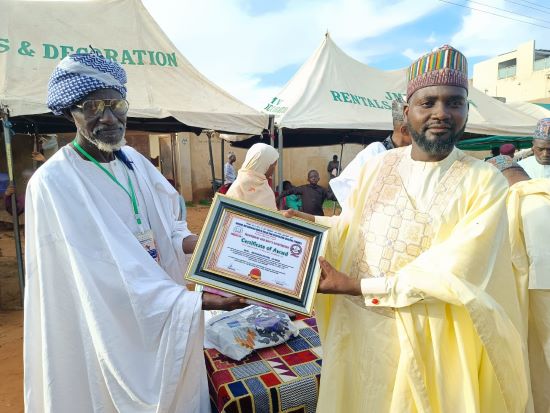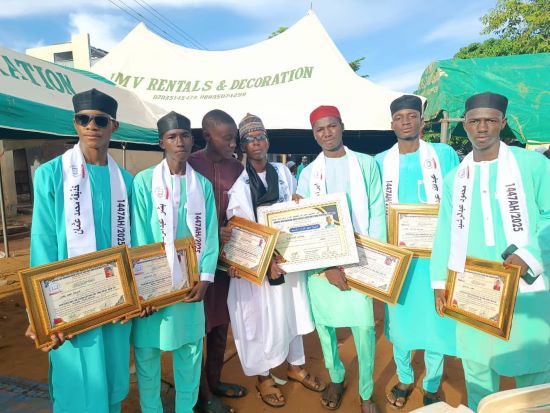Joy and pride filled the air in Nakasarin Ardo as 101 students graduated from the Amirul Mu’minina Muhammad Bello School for Qur’anic and General Studies during its 5th Qur’anic graduation ceremony held on Sunday.
By Usman Mohammed Binji
Families, community leaders, and education advocates gathered to celebrate the young graduates’ accomplishments, but behind the smiles and festivity lay deeper concerns about the future of Qur’anic education in Sokoto State.

Speaking at the event, the school’s chairman, Malam Sunusi Kaura, used the occasion to renew calls for the Sokoto State Government to increase its financial support for Islamiyya schools. He noted that the Amirul Mu’minina school, founded on November 28, 2004, had only received minimal assistance from the State Arabic and Islamic Education Board.
“We started with N2,000 monthly, which was later increased to N5,000, but that barely covers anything,” Kaura said. “The board even withdrew two teachers it initially assigned. We now run with 16 teachers but continue to struggle with poor infrastructure and inadequate teaching materials.”
The sentiment was echoed by other dignitaries at the event, including Dr. Larai Aliyu Tambuwal, Executive Secretary of the Sokoto State Primary Healthcare Development Agency, who emphasized the need for communal effort in supporting vulnerable children.
“We must build a culture where orphaned and underprivileged children receive sponsorship to complement government efforts,” she said, sharing her own story of graduating from a Qur’anic school at the age of 12—an experience she said still shapes how she raises her children.

In a passionate lecture, Imam Gidan Dahala urged parents to take active roles in their children’s Islamic education. He emphasized regular school attendance, parental engagement, and community contribution as essential to the progress of Qur’anic institutions.
Also in attendance was Comrade Usman Muhammad Binji, Chairman of the Nigeria Union of Journalists (NUJ), Sokoto State Council, who presented certificates and prizes to the graduands.
While the event marked a milestone for the school and its students, it also spotlighted the persistent challenges facing Qur’anic education in Sokoto—and the urgent need for both governmental and community action to preserve and strengthen this critical pillar of Islamic learning.

